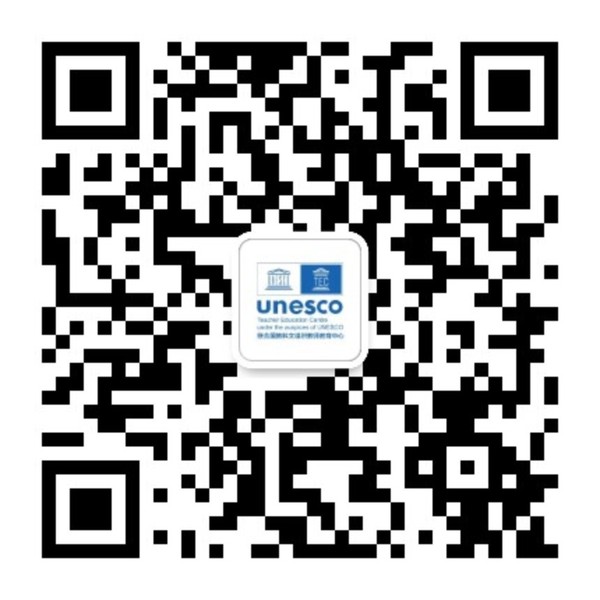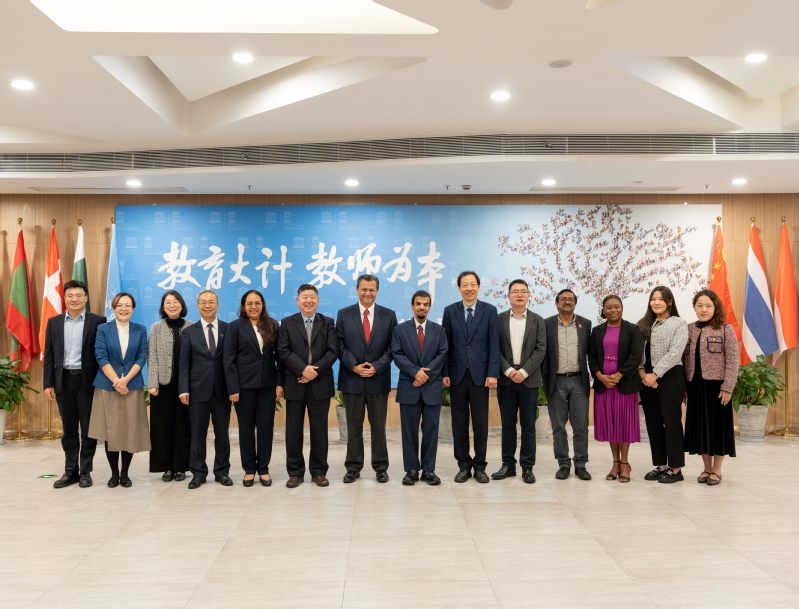
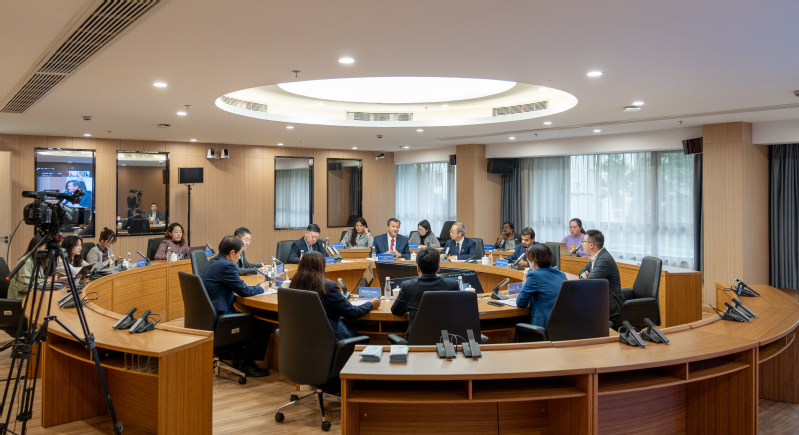
On the afternoon of November 10, the 8th Coordination Meeting of UNESCO Category Ⅱ Institutes in the Field of Education was held at the UNESCO Teacher Education Centre (hereinafter referred to as the Centre). With the theme Together, We Can Make a Change, the meeting aimed to strengthen exchanges and connections among UNESCO Category Ⅱ Institutes in education. Chaired by Associate Professor Bian Cui of the Centre, participating institutions attended either in person or online.
Institutions joining the coordination meeting included the UNESCO Teacher Education Centre (TEC), Asia-Pacific Centre of Education for International Understanding (APCEIU), International Research and Training Centre for Rural Education (INRULED), International Centre for Higher Education Innovation (ICHEI), Regional Centre for Quality Education (RCQE), Regional Centre for Educational Planning (RCEP), and Institute for Early Childhood Development (IECD).
At the opening ceremony, Deputy Secretary-General Ge Siying of the Secretariat of the Chinese National Commission for UNESCO, Carlos VARGAS-TAMEZ, Head of the UNESCO Teacher Development Task Force, and Zhang Minxuan, Director of the Centre, delivered opening remarks in sequence. Ms. Ge Siying reviewed the historical background and development of the coordination meetings of UNESCO Category Ⅱ Institutes in education, and affirmed the efforts of all institutions in supporting UNESCO to achieve various educational goals, especially SDG 4. Mr. Carlos VARGAS-TAMEZ pointed out that global education currently faces two challenges: educational equity and educational financing. To address these, extensive cooperation among all parties, including UNESCO Category Ⅱ Institutes in education, is needed to promote the sustainable development of global education. Professor Zhang Minxuan not only welcomed the representatives of all institutions but also expressed hope for more opportunities to meet, exchange ideas, and carry out practical cooperation with representatives of other Category Ⅱ Institutes in education.
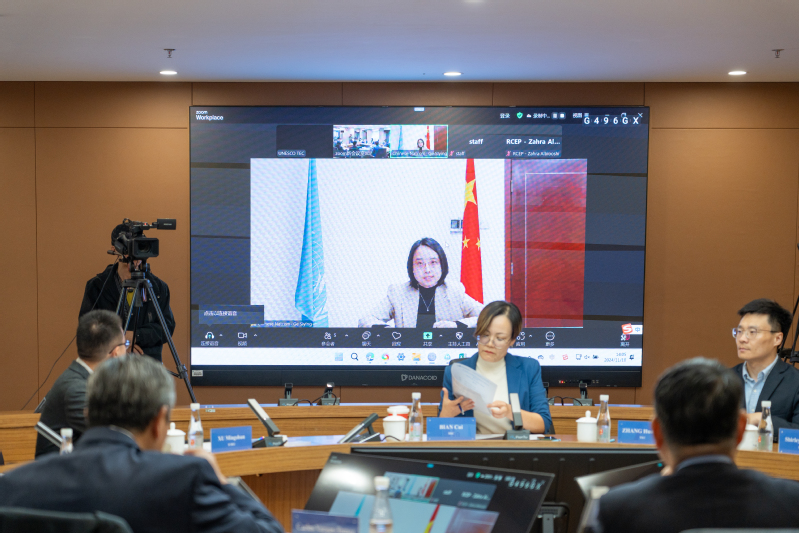
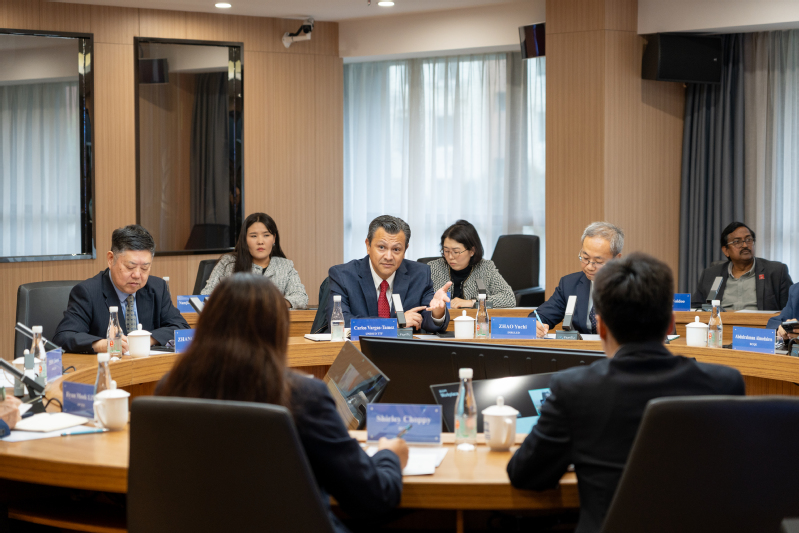
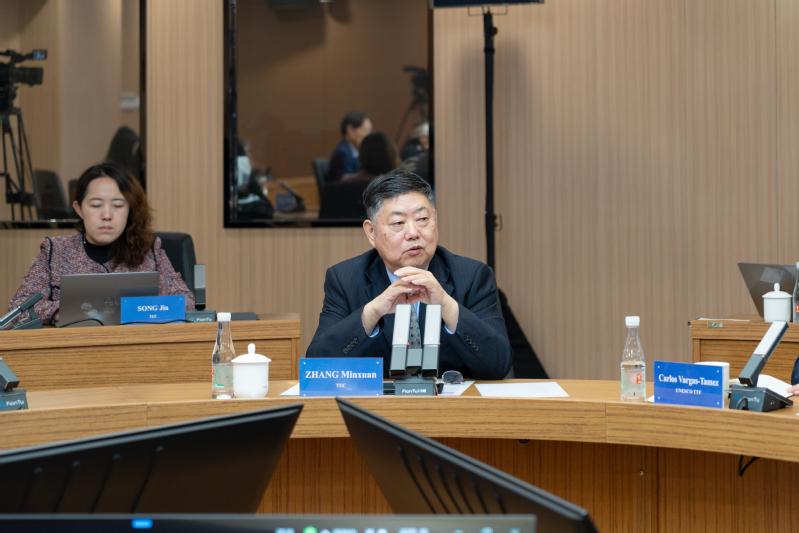
Subsequently, each institution introduced its recent key work and future plans. Dr. Zhao Yuchi, Executive Director of INRULED, presented the overall goals, priority development areas, strategic objectives, action directions, and thematic fields of INRULED’s 2024-2029 medium-term strategic framework.
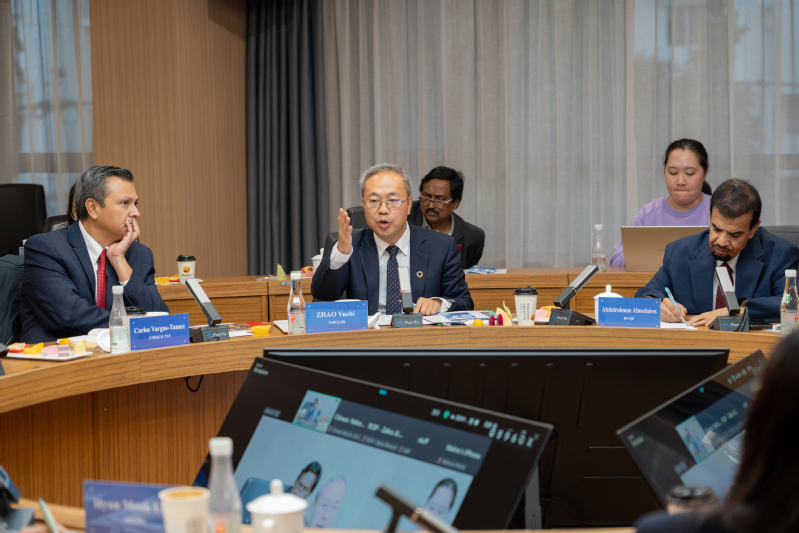
Ms. Mahra Almutaiwei, Director of RCEP, and Ms. Zahra Alblooshi, Senior Expert for Strategic Planning and Performance Management at RCEP, delivered a report covering RCEP’s strategic goals, priority projects implemented in educational planning, and achievements made since 2017.
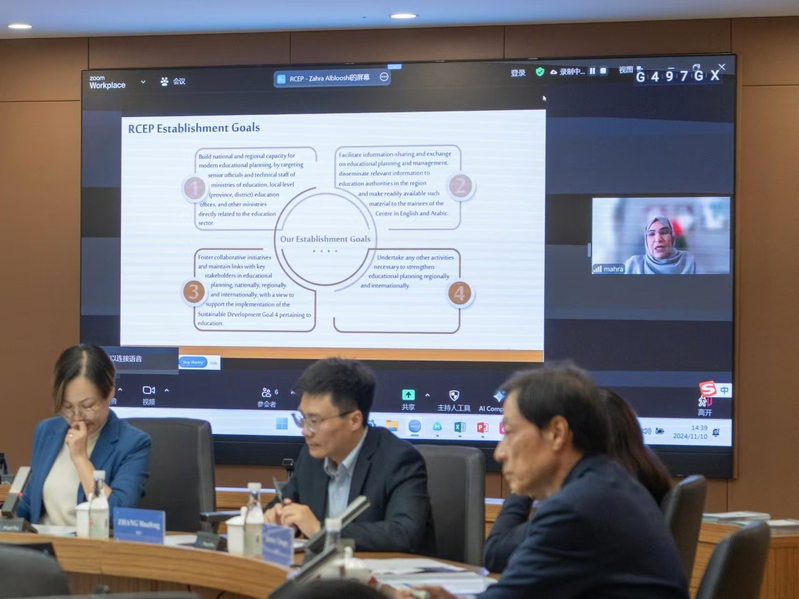
Mr. Hyun Mook LIM, Director of APCEIU, and Ms. Kyung Hwa CHUNG, Head of the External Relations and Information Office at APCEIU, shared their achievements in Global Citizenship Education (GCED) and stated that APCEIU will continue to support UNESCO’s initiatives related to Education for Sustainable Development in the future.
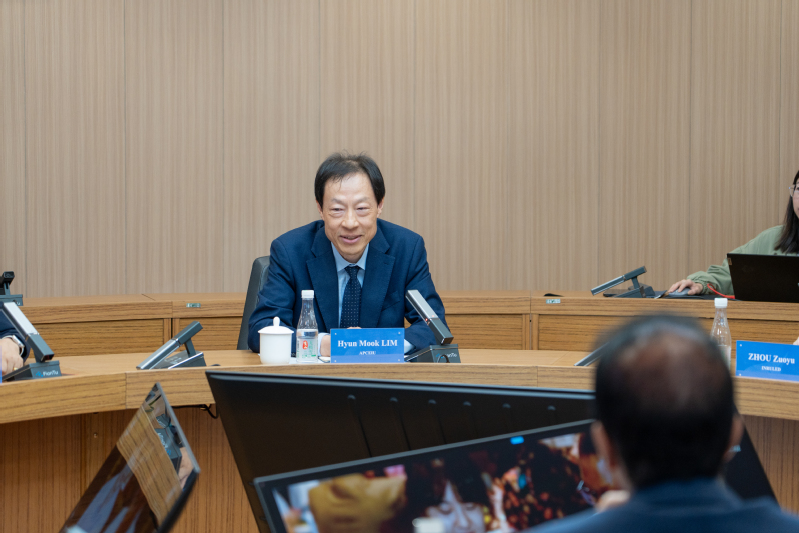
Ms. Shirley Choppy, Chief Executive Officer of IECD, introduced the educational situation in Seychelles, key projects carried out by IECD in Early Childhood Care and Education (ECCE), and the achievements made. She also noted that IECD will continue to promote ECCE projects in other parts of Africa.
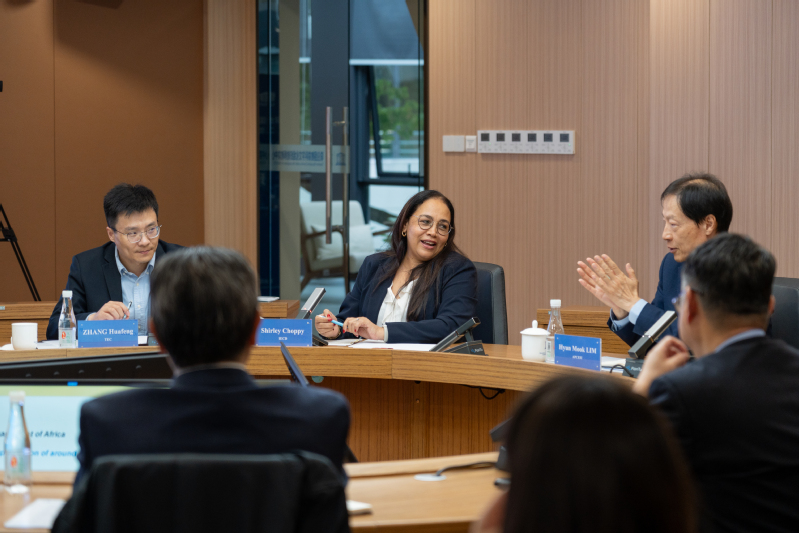
Dr. Abdulrahman Almedaires, Director-General of RCQE, elaborated on RCQE’s main responsibilities, operational model, service structure, key areas, and major projects. He emphasized that RCQE’s ultimate goal is to provide innovative strategies for improving educational quality in Arab countries and set a benchmark in the global education sector.
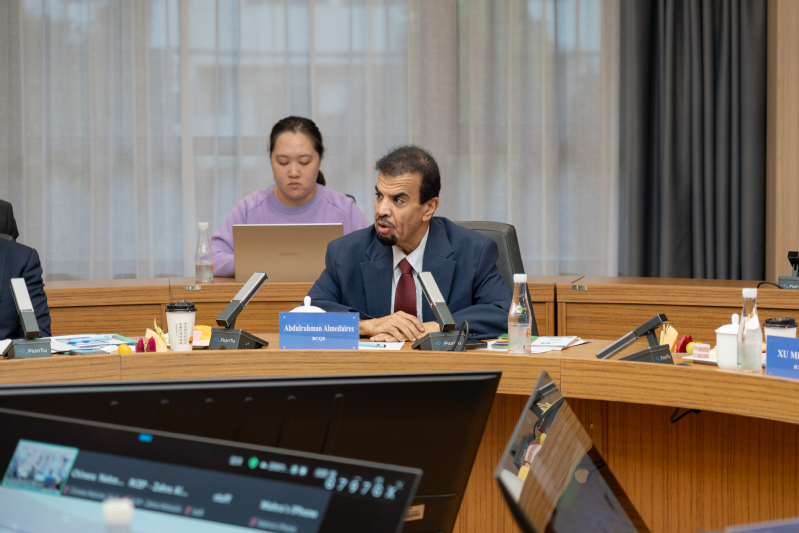
Mr. Xu Mingshun, Interim Head of the Administration Department at ICHEI, shared key projects carried out by ICHEI in collaboration with the International Institute for Online Education (IIOE) in 2024, and stated that ICHEI will continue to work on enhancing the digital skills of higher education professionals and building regional and international platforms for exchange and dialogue in the coming year.
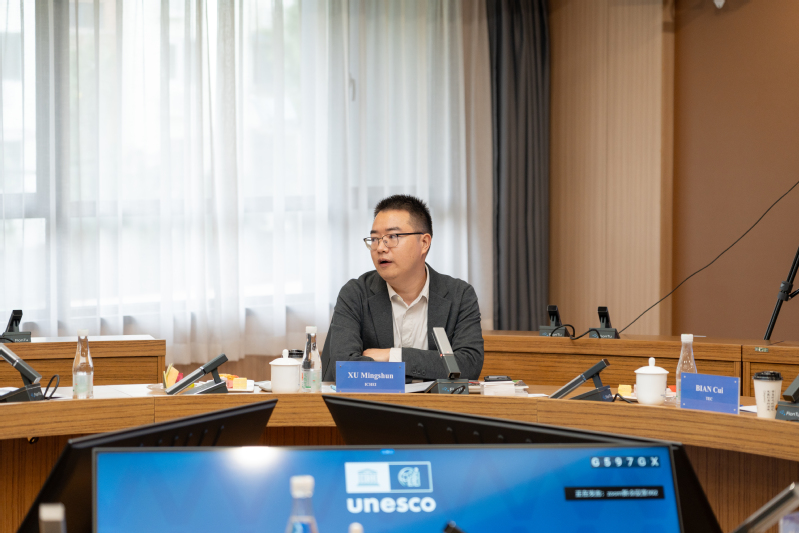
Professor Zhang Minxuan, Director of the Centre, reviewed the key projects carried out by the Centre over the past year around its four missions and four functions. He also stated that the Centre will continue to fulfill its functions and missions under the framework of the 4C Model and cooperate with more international organizations to jointly build high-quality global teacher education.
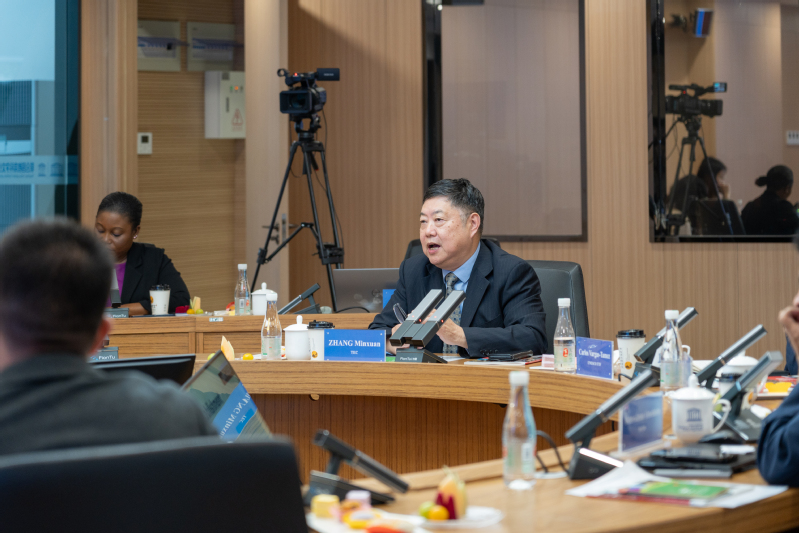
Participants agreed that the field of teachers serves as a link connecting all institutions and an important platform for establishing cooperation among participating institutions. Beyond the cooperation network of Category Ⅱ Institutes in education, a broader cooperation network is needed. Additionally, many participants emphasized that teachers are a core factor in improving educational quality. In the context of global teacher shortages, all institutions need to advance teacher development and educational reform on an evidence-based basis, drawing on statistical data and existing educational practices.




